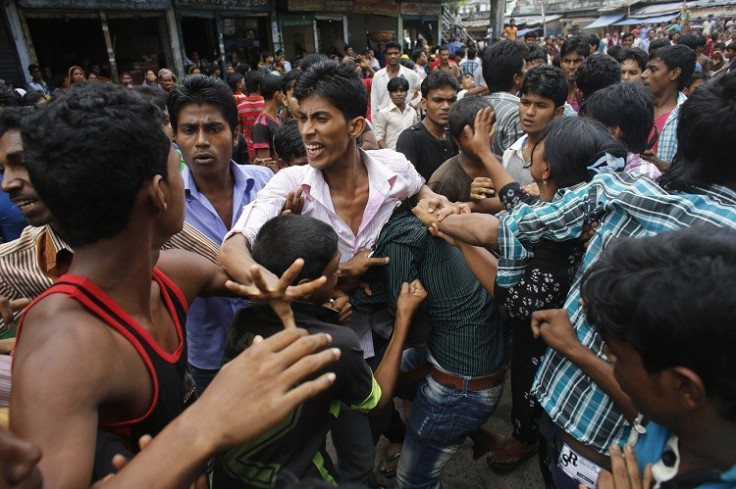Bangladesh Approves 77% Pay Rise for Garment Factory Workers

Bangladesh's official wage board has approved a 77% rise in pay for the region's garment workers from December after the world's second largest clothing exporter was crippled by strikes and the Rana Plaza disaster.
According to a government announcement, the wage board will push up the monthly minimum wage for entry-level garment industry workers to 5,300 taka (£41.8, €50.1, $67.4), from 3,000 taka.
Over four million people, mostly women, work in Bangladesh's clothing sector and work for an average monthly salary of $38.
However, Indian workers at non-clothing factories earn an average of $100 per month.
In September this year, thousands of garment factory workers in Bangladesh protested over low wage rates, resulting in the closure of many factories.
Bangladeshi workers wanted monthly wages raised to $100 but factory owners said an increase in wages beyond $45 per month would threaten the existence of companies following rising production costs.
Garment Industry Costs
Wages were last raised in 2010 and the increase to 5,300 taka still falls short of the 8,000 taka demand.
However, Sirajul Islam Rony, a member of the government appointed committee said the wage board negotiated a compromise which was acceptable to all sides.
"The representatives of the owners and workers have agreed to comply with the decision of the wage board," Rony said and added that the new structure includes allowances for food, rent, transport and medical care.
Knitwear exports account for $2bn a year for India's economy.
In June, the appetite for cheap clothing in the West resulted in a 26% surge in garment exports year-on-year.
Garments produced in Bangladesh are around two-to-three times lower than in Vietnam.
Improving Standards
US and European retailers have agreed on a new set of fire and safety standards for up to 2,000 Bangladeshi factories in a bid to avoid another Rana Plaza disaster.
However, the latest agreement shows that while global retailers have forged a pact, there is still a dispute over how to pay for the fire safety upgrades.
The North American group, Alliance for Bangladesh Worker Safety, says it is willing to stump up $100m in loans to factory owners to finance safety upgrades.
"It's up to the factory owner to decide if they want to remediate. We can't force them to make these changes," said Jeffrey Krilla, president of the American-led alliance.
Meanwhile, European retailers agreed to finance fire and safety reforms for buildings that do not meet requirements.
"The reason garment factories continue to be unsafe is not for a lack of common standards," said Theresa Haas, a spokeswoman for the Worker Rights Consortium, a labor rights group that is a member of the European-led Accord on Fire and Building Safety in Bangladesh.
© Copyright IBTimes 2025. All rights reserved.






















